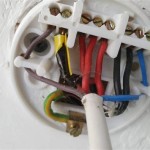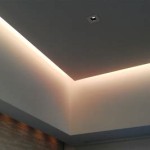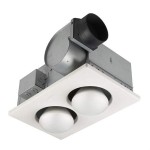Essential Aspects of the Best LED Strip Lights for Kitchen Ceilings: A Comprehensive Guide
Proper lighting is essential for creating a functional, aesthetically pleasing, and welcoming kitchen. LED strip lights have emerged as a popular choice for kitchen ceilings due to their versatility, energy efficiency, and ability to enhance the ambiance. Understanding the essential aspects of these lights is crucial for selecting the perfect ones for your kitchen ceiling.
In this guide, we will delve into the key considerations to help you make an informed decision. We will discuss factors such as brightness, color temperature, CRI, beam angle, length, installation, and additional features. By considering these aspects, you can ensure that your kitchen ceiling is illuminated in a way that meets your specific needs and preferences.
1. Brightness
The brightness of LED strip lights is measured in lumens. For kitchen ceilings, a brightness level of around 300-400 lumens per square foot is generally recommended. This provides ample illumination for cooking, food preparation, and other tasks.
2. Color Temperature
Color temperature refers to the warmth or coolness of the light emitted. Warm white (2700K-3000K) creates a cozy and inviting atmosphere, while cool white (4000K-5000K) provides a crisp and energizing ambiance. Natural white (3500K-4000K) falls somewhere in between, offering a balanced and versatile option.
3. CRI
CRI (Color Rendering Index) measures how accurately the light source renders colors. A higher CRI indicates that colors under the light will appear more vibrant and true-to-life. For kitchen lighting, a CRI of 90+ is recommended to ensure that food and other items look their best.
4. Beam Angle
The beam angle determines how widely the light is distributed. A narrow beam angle (30-60 degrees) creates a concentrated spot of light, while a wider beam angle (120-180 degrees) provides more diffused illumination. For kitchen ceilings, a beam angle of 120-160 degrees is often suitable.
5. Length
The length of the LED strip light will depend on the size of your kitchen ceiling. Measure the area you want to illuminate and choose a strip light that is long enough to cover the entire space.
6. Installation
Consider the ease of installation when choosing LED strip lights for your kitchen ceiling. Some lights require professional installation, while others can be easily mounted using adhesive backing or clips. Choose an installation method that suits your skill level and budget.
7. Additional Features
Some LED strip lights come with additional features that can enhance functionality and convenience. These may include dimming, color changing, remote control, and smart home integration. Consider the features that would be most beneficial for your kitchen and choose lights accordingly.

How To Position Your Led Strip Lights

Top 7 Led Lights For Your Kitchen Arch2o Com

25 Best Kitchen Lighting Ideas 2024 Moonbeam Lightingmoonbeam Blog

Create Stunning Lighting Effects With Govee Rgbic Led Strip Lights

Lighting Guide Best Designer Led Strip Gineico

The 4 Best Smart Strip Lights Of 2024 Reviews By Wirecutter

Ideas For Using Flexible Led Strip In Your Kitchen Unitop

How To Choose And Install Led Strip Lights For Kitchen Cabinets

25 Best Kitchen Lighting Ideas 2024 Moonbeam Lightingmoonbeam Blog

How To Cut Connect Install Led Light Strips Smart Lighting
Related Posts








